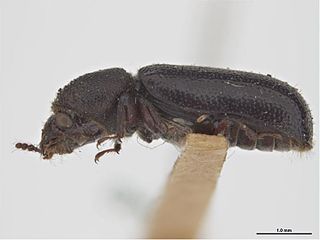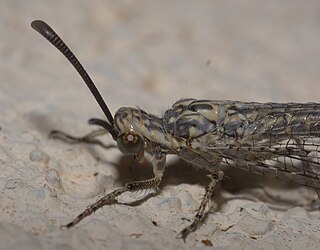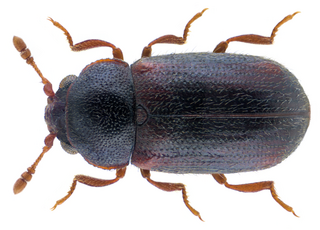
Solanum is a large and diverse genus of flowering plants, which include three food crops of high economic importance: the potato, the tomato and the eggplant. It is the largest genus in the nightshade family Solanaceae, comprising around 1,500 species. It also contains the so-called horse nettles, as well as numerous plants cultivated for their ornamental flowers and fruit.

Lynx spider (Oxyopidae) is a family of araneomorph spiders first described by Tamerlan Thorell in 1870. Most species make little use of webs, instead spending their lives as hunting spiders on plants. Many species frequent flowers in particular, ambushing pollinators, much as crab spiders do. They tend to tolerate members of their own species more than most spiders do, and at least one species has been identified as exhibiting social behaviour.

The great knot is a small wader. It is the largest species of the genus Calidris. They are a migratory bird which breeds in Siberia, Russia, and flies to southern Asia and Australia in the northern winter.

Dún Laoghaire–Rathdown is a county in Ireland. It is in the province of Leinster and the Eastern and Midland Region. It is one of three successor counties to County Dublin, which was disestablished in 1994. It is named after the former borough of Dún Laoghaire and the barony of Rathdown. Dún Laoghaire–Rathdown County Council is the local authority for the county. The population of the county was 233,860 at the time of the 2022 census.

Lycium is a genus of flowering plants in the nightshade family, Solanaceae. The genus has a disjunct distribution around the globe, with species occurring on most continents in temperate and subtropical regions. South America has the most species, followed by North America and southern Africa. There are several scattered across Europe and Asia, and one is native to Australia. Common English names for plants of this genus include box-thorn, wolfberry, and desert-thorn. Plants of the World Online currently accepts 101 species. Other estimates are of 70 to 80 species.
The Dun & Bradstreet Holdings, Inc. is an American company that provides commercial data, analytics, and insights for businesses. Headquartered in Jacksonville, Florida, the company offers a wide range of products and services for risk and financial analysis, operations and supply, and sales and marketing professionals, as well as research and insights on global business issues. It serves customers in government and industries such as communications, technology, strategic financial services, and retail, telecommunications, and manufacturing markets. Often referred to as D&B, the company's database contains over 500 million business records worldwide.

L'Hoest's monkey, also known as the mountain monkey, is a guenon found in the upper eastern Congo Basin. They mostly live in mountainous forest areas in small, female-dominated groups. They have a dark coat and can be distinguished by a characteristic white beard.

Scolopendridae is a family of large centipedes.

Uvaria is a genus of flowering plants in the family Annonaceae. The generic name uvaria is derived from the Latin uva meaning grape, likely because the edible fruit of some species in the genus resemble grapes.

Ergalataxinae is a taxonomic subfamily of small to medium-sized predatory sea snails, marine gastropod mollusks within the family Muricidae, the rock snails. In this subfamily, the aragonitic shell has 0–2 varices.

The Solanaceae, or the nightshades, is a family of flowering plants that ranges from annual and perennial herbs to vines, lianas, epiphytes, shrubs, and trees, and includes a number of agricultural crops, medicinal plants, spices, weeds, and ornamentals. Many members of the family contain potent alkaloids, and some are highly toxic, but many—including tomatoes, potatoes, eggplant, bell, and chili peppers—are used as food. The family belongs to the order Solanales, in the asterid group and class Magnoliopsida (dicotyledons). The Solanaceae consists of about 98 genera and some 2,700 species, with a great diversity of habitats, morphology and ecology.

Pelocoris is a genus of creeping water bugs in the family Naucoridae. There are about 15 described species in Pelocoris.

Stephanopachys is a genus of horned powder-post beetles in the family Bostrichidae. There are more than 20 described species in Stephanopachys.

Scotoleon is a genus of antlions in the family Myrmeleontidae. There are more than 20 described species in Scotoleon.

Eremopedes is a genus of shield-backed katydids in the family Tettigoniidae. There are about 16 described species in Eremopedes.

Ceraleptus is a genus of leaf-footed bugs, in the family Coreidae. There are about nine described species in Ceraleptus.

Sphindus is a genus of cryptic slime mold beetles in the family Sphindidae. There are at least three described species in Sphindus.
Aphilanthops hispidus is a species of wasp in the family Philanthidae. It is found in Central America and North America.
Aphilanthops frigidus is a species of wasp in the family Philanthidae found in North America.















